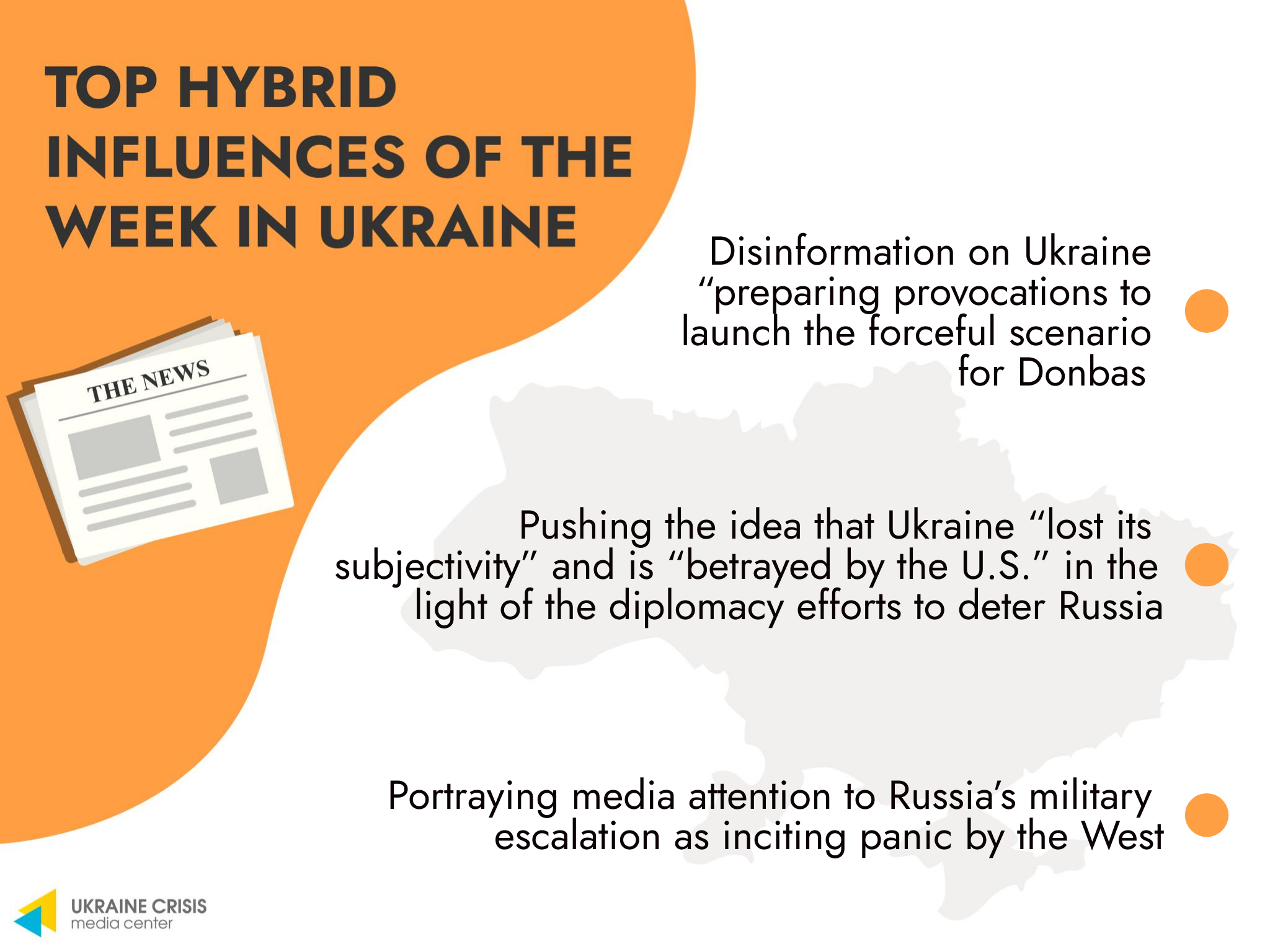The pro-Kremlin propaganda aided the rising tension at the Russia-Ukraine border by spreading disinformation about Ukraine “preparing provocations”, including “a series of terrorist attacks” in occupied Donbas. The move is aimed to justify Russia’s possible further offensive and demonize the Armed Forces of Ukraine. Ukraine has repeatedly stated that it has no intention for any offensive military operations and is devoted to diplomacy efforts for a peaceful resolution.
Talks between Russia and representatives of the West were traditionally accompanied by a flow of manipulations by the pro-Russian forces that portray Ukraine as an object of geopolitical trade the U.S. is using to further its interests. Thus, again the Kremlin’s proxies reinforce the external governance narrative and attack Ukraine’s sovereignty while sowing dismay with its partners’ betrayal messages.
The attention of the international community and media to Russia’s possible further invasion of Ukraine was traditionally portrayed as artificial but also was used as an explanation of the worsening economic situation in Ukraine. Thus, the attention is shifted to the “evil West” undermining Ukraine, not Russia’s military build-up in and near Ukraine and its continuous efforts to destabilize the situation in the country from inside, such as the recent cyber attack on the state websites. For the key facts about the latter, check out our infographic.



